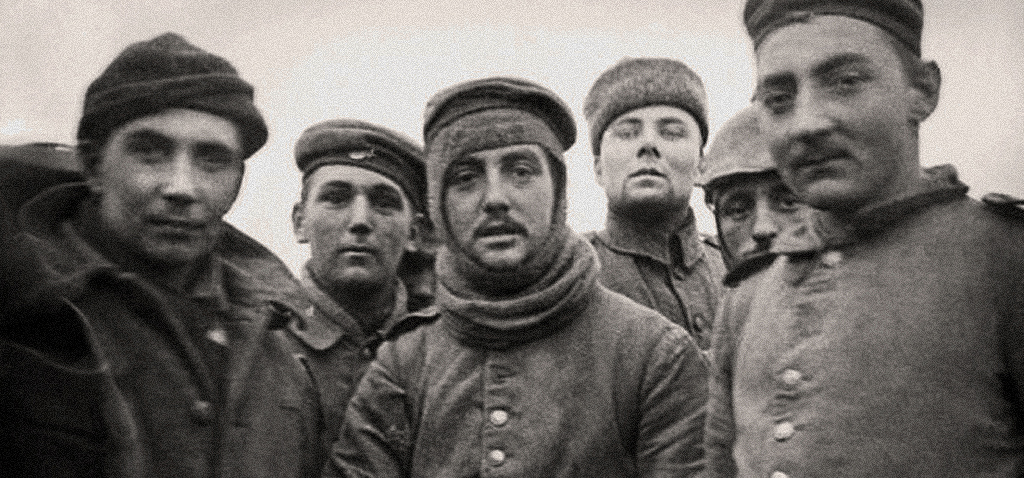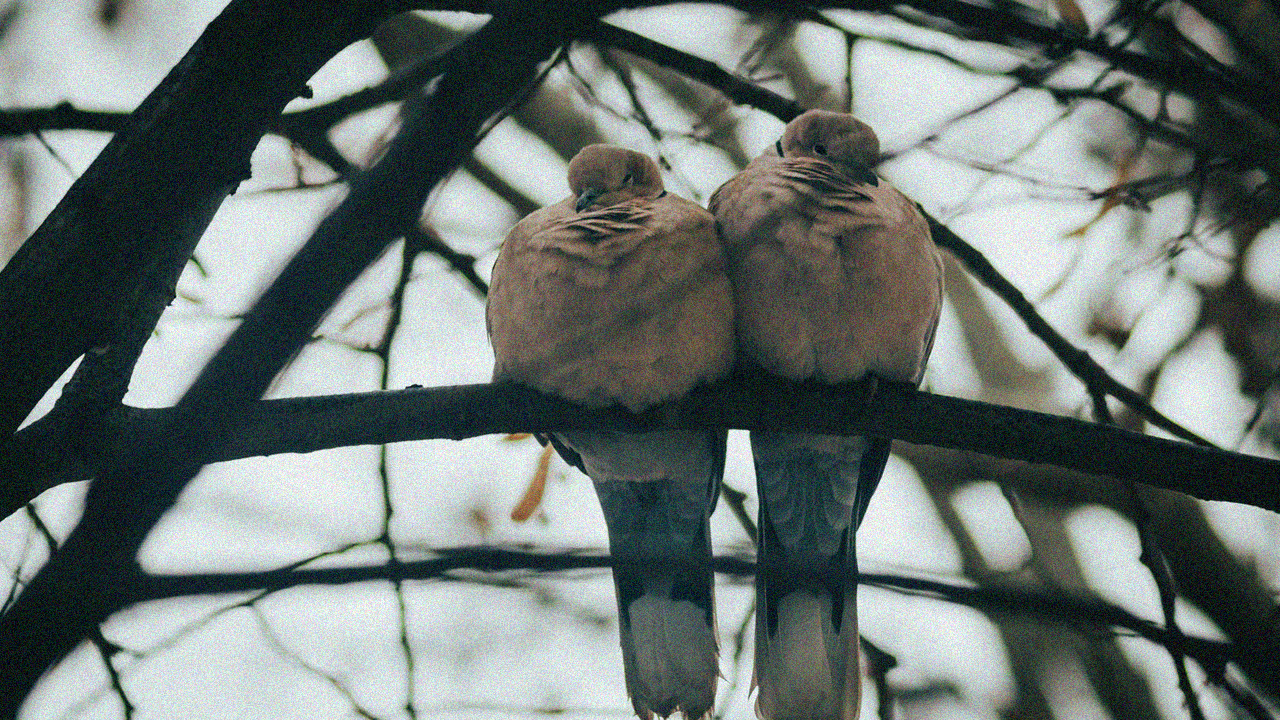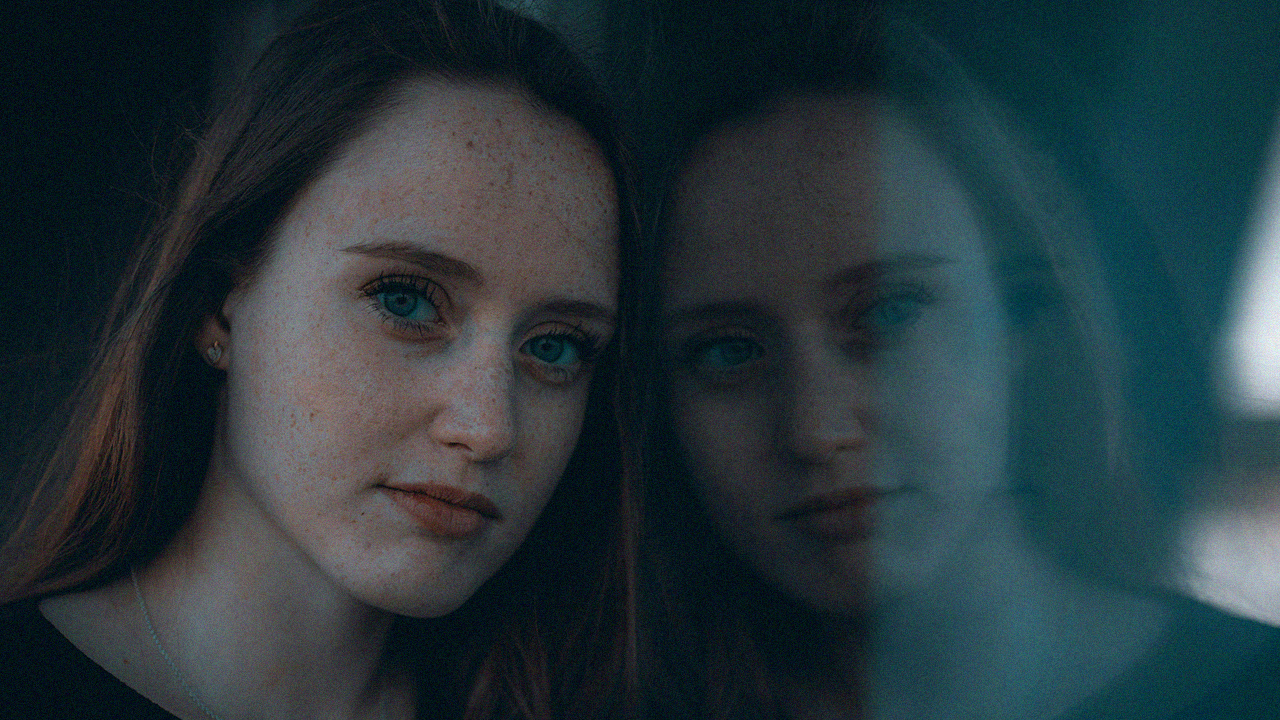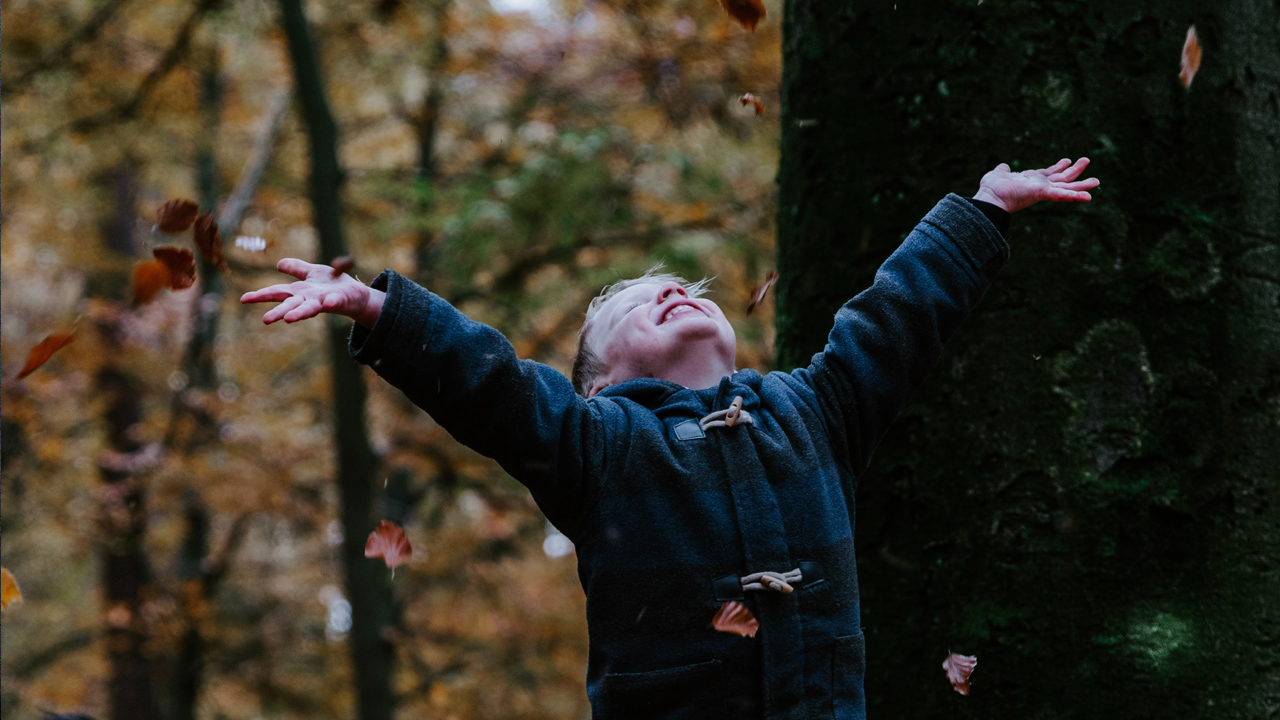
Christmas Truce
Christmas has become so familiar and ritualized that it may help to look for renewed meaning in the unlikeliest of circumstances, to travel from the traditional imagery of December in year one of the Common Era to a distant Christmas in December, 1914. That Christmas, World War One was only five months old and after a furious German advance into France and Belgium, the lines on the Western front ground to a stalemate. Both sides dug trenches, sometimes only fifty yards apart, and hedged them with sandbags and barbed wire.
It was the first war where traditional battle formations met modern artillery and machine gun fire, and launching repeated attacks, neither side could break through each other’s defenses. A terrible waiting began…for new orders, for better weather, for the eventual introduction of the modern tank that would change everything. In miserable, cold, wet weather, infantry soldiers waited in the mud for something to happen. And on Christmas Eve, on the lines across Belgium and Northern France between the British and German armies, something did.
As Christmas approached, fighting had grown more intermittent and had virtually ceased by Christmas Eve. That night about 10PM, as a British machine gunner wrote, he heard voices from the German lines, and carefully looking over the edge of his trench, saw that German soldiers had placed lit Christmas trees on top of their sandbags in full view of the British troops and were singing Christmas carols. The British applauded and responded with carols of their own, and after some confused shouting, he heard a German call out in heavily accented English, “Come over here.” A British sergeant called back, “You come half way; I come half way.” Amazingly, they did just that, and the sergeant came back to say they had called an informal ceasefire at least through Christmas Day.
Slowly at first, soldiers left their weapons and risked sniper fire to crawl out past the barbed wire until hundreds from both sides stood in No Man’s Land meeting the soldiers they were trying to kill just hours before—to shake hands, laugh, exchange badges, buttons, food, cigarettes and cigars, and even have impromptu football matches. And to talk. Many of the Germans spoke English, having worked in Great Britain before the war, and they spoke of their lives and families, girlfriends, and their views of the war and its outcome. In that moment, they saw their enemies only as men like themselves, muddy pawns caught in the movement of empires.
In the days following, the high command of both sides had to work hard, imposing new punishments and sanctions, ramping up love of country and hatred of the enemy to restart the war. In the scheme of things, the Christmas Truce of 1914 was just a blip in the four and a half years of the war. Historians minimize the intent and scope of the informal truce and stress that it happened early in the war before the first poison gas was used, before the sinking of the Lusitania and other atrocities, and before the unimaginably bloody battles of Verdun, the Somme, and Passchendaele. But true as that may be, something did happen that Christmas. Something huge and very human.
Christmas has a hold on us. Established in the earliest memories of our childhood as a time of lights and magical traditions, it is reinforced in the study of our faith, deepened in the presence of our own children, and reclaimed in our darkest moments when the hope of newborn life is all we seemed to have left in the mud. It’s amazing that even in our darkest moments, there can still be a song in us, a smile, laugh, a game of football—as the hope of Christmas calls us out to see the possibility of new life amid the desolation of no man’s land.
Christmas is always calling us back to our best selves. In our mind’s eye, we arrive with shepherd and wise man to see Miryam and Yosef patiently tending to each detail of their family’s need; we still hear the angels singing: Glory to God in the highest, and on earth peace, good will toward men. Peace and good will toward us: the hope that we see in every newborn’s eyes, magnified intensely in the newborn Emmanuel, God-with-us. If God is with us, what need is there of trenches and barbed wire?
When we enter the story, or better, when we let the story enter us, the miracle happens, and peace breaks out spontaneously all around. When we stop reading a story two thousand years in the telling and ask where this Christmas may be calling us right now—out of which defense or circumstance—if we’re willing to let Christmas begin to disarm us as it did Miryam, Yosef, and certain British and German soldiers, we’ll all have something to write home about.
The world was hopelessly divided in 1914. But two opposing armies with no man’s land between them had a common heritage and faith in Yeshua’s birth that broke through their defenses when weapons and blood could not. In spite of their military orders and acquired hatred, a shared belief in the reality of God-with-us allowed them, for just a moment, to see their enemy as fellow humans with families and girlfriends and hopes and dreams. God-with-us impelled them to disarm, and risk their lives to share that moment in a way the world has rarely seen.
Today, we are no less divided on the Western front, maybe even more so as, over the past hundred years, we have lost much of the common heritage of our faith that used to bridge some of the gaps between us. With best intentions and concern for our common future, we disagree on the best way forward. And the stakes for our children are so high, it seems that everyone in our path must be separated as if by the prow of a ship into those who must be persuaded or defeated on one side and those we can stand beside on the other.
But we become what we think about all day.
We become what we think about all day…and if we focus too long on what separates us, we become the separation. We become the incarnation of the problem of humanity—the problem in human form.
Christmas is the incarnation of the solution…Yeshua as newborn hope in human form. Every newborn promises hope—the promise of all that’s possible in each of us. But though we all lose our promise along the way, lose our hope, Yeshua is the promise fulfilled, the hope of connection that never fades.
Christmas is a shared moment when we can suspend all the theology, doctrine, and heavy-headed things that separate us, and get lost in the miraculous and mysterious, the lights and songs, the family traditions that inhabit our first and clearest memories, the unthinking bliss of holding a child’s easy weight in our arms…all the bits that identify us as human in spite of our differences.
These human bits bound German and British soldiers together more powerfully than their nationalism, politics, fear, and hatred tore them apart. For a few moments over Christmas, only fifty yards from their worst fears, their common humanity brought them back from the dead to find long lost brothers wearing different uniforms.
Now before we lose our balance in the real world, remember that Yeshua lived in this same world. He was fully aware of the realities of life and never disregarded them. There is always opposition in life, and we often disagree for good and necessary reasons. Yeshua never shrank from that, and did his share of opposing-for- really-good-reasons. But however long and hard he fought, he never let people fall into opposing camps, never stopped seeing their human connection with himself. In his mind and heart, there were only people who needed the disarming acceptance that dissolves fear. Whether they or we actually disarm is entirely up to us, but Yeshua never stops pouring his acceptance against our defenses.
This may be a difficult new year—for us as a country and personally. But as if in preparation, Christmas is asking us if we can remember who we really are under the uniforms. Whether we can see in an opposing adult, the promise of a newborn infant, the hope that disarms and brings us back out to play in our common humanity.
Miryam and Yosef were parents. British and German soldiers are parents. We are parents—even if we’ve never had children or the nest is empty. We’re all caretakers of the life we’ve been given, whether our own or that around us, and we’re all caught one way or another in the movement of empires that takes us where we may not want to go.
Miryam and Yosef found Emmanuel, God-with-us, in the unlikeliest of circumstances. We can do that too, if we so desire. There is a bond, a sameness between us that we share as humans living with little humans that shows us how.
Our stories are their story, and their story is ours. To miss that, to miss entering into Emmanuel here and now is to entirely miss the point of this greatest story ever told—which is our story, the story we find ourselves in—every day, every moment, and every detail of our beautiful chaos.





